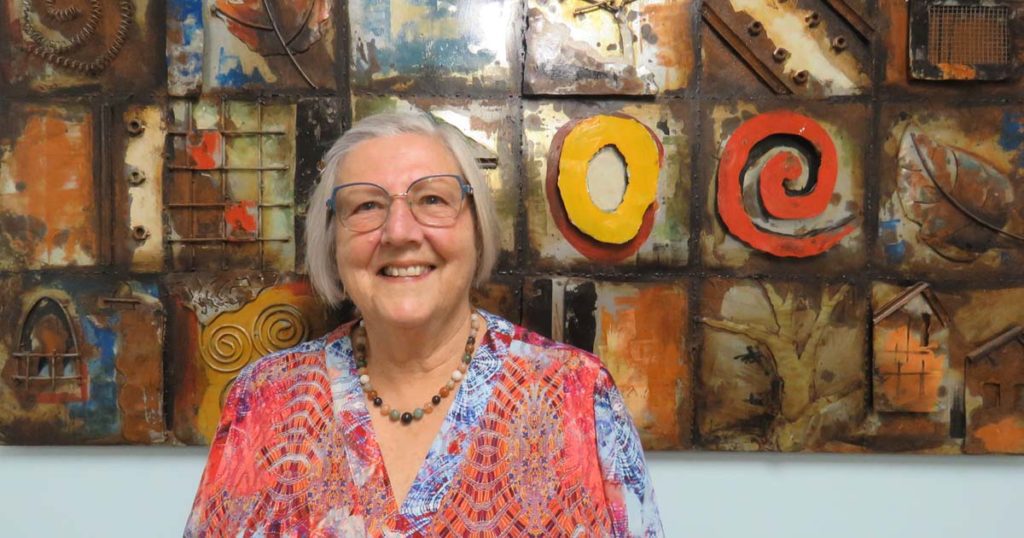By Emily Friedel
Now that international travel is on the cards again, learning a new language may have practical appeal. However, even if you don’t plan to explore far-flung places and converse with the locals in their native tongue, you may want to consider studying another language. Taking on the tricky task of absorbing a foreign language may lead to a better brain.
Learning promotes physical changes in the brain; learning is to the brain what exercise is to the muscles. But just as different types of exercise affect muscles differently, different types of learning affect the brain differently. Language acquisition could be considered the exercise equivalent of high intensity interval training: it takes a lot of effort, but it pays off.
Several studies have found links between bilingualism and a range of enhanced cognitive abilities, including having a flexible thinking style that facilitates adaptation to changing situations and being able to focus attention on what’s important while ignoring what’s not. Other research suggests bilinguals tend to develop dementia around four years later than monolinguals and have better mental faculty recovery after a stroke.
Researchers have suggested that the benefits of bilingualism stem from the brain training it involves, and a 2012 study published in the journal NeuroImage indicates that learning a new language can literally makes certain brain areas grow. This study looked at the brains of Swedish armed forces members who underwent three-month intensive foreign-language courses to become interpreters. Neuroimaging revealed that after studying a new language for three months, a brain area that plays a vital role in learning and memory (the hippocampus) had increased in volume. There were also increases in the thicknesses of several other language-related areas in the cerebral cortex.
One of the most interesting things about this study was that it compared language-learners to those who were studying challenging subjects such as medicine and cognitive science. And while those studying the other subjects showed increased volume in the hippocampus, the language-learners had significantly greater increases. So straining your brain to learn a language may produce different effects than trying to understand other complex subject matter.
An off-putting aspect of learning a new language is that, for most of us, it’s really hard. There is a critical period of human development in which the acquisition of a second language is relatively easy, and a 2018 study by Massachusetts Institute of Technology suggests this extends up to 17 or 18 years. Beyond that, getting your head around an unfamiliar language becomes more difficult. For many adults, it may feel arduous and overwhelming.
On the bright side, having to work harder to learn a language may lead to enhanced brain growth. In the 2012 Swedish study, those who struggled more to learn the new language during their three-month intensive course had greater increases in one particular language-related brain area (the middle frontal gyrus). Perhaps the ‘no pain, no gain’ proverb so often uttered in relation to exercise outcomes is also applicable to language learning.
Learning a language from another culture may also cultivate social skills by opening your mind to other worldviews. Languages encapsulate the values and perspectives of the culture in which they are rooted. For example, your native language may influence how you perceive colour. In Greek there are two words for blue, one for lighter hues and one for darker. However, Greek people who have been living in the UK for a long time distinguish less between the light and dark blue categories, adopting more of the English-speaking approach that a single word covers both categories. Therefore, learning another language may require considering or adapting to alternative ways of viewing the world.
The idea that learning a different language can help put you in another’s headspace is supported by a 2018 meta-analysis of research showing that bilingual children have an advantage over monolingual children when it comes to developing theory of mind. Theory of mind is the ability to attribute mental states to other people; that is, it’s the ability to understand what someone else is thinking or feeling. While the precise reason for this bilingual theory of mind advantage is yet to be elucidated, a 2015 study found that children who were exposed to a second language but not bilingual also displayed enhanced theory of mind. This finding suggests the awareness that other people can have different linguistic knowledge may underpin the bilingual theory of mind advantage.
Regardless of your motivations for mastering a new lingo, learning a new language could give your brain the workout it needs to develop bigger cognitive ‘muscles’. It may even make you a better, more socially competent person. And don’t let the prospect of being an adult language learner stop you, as the French say, mieux vaut tard que jamais (better late than never).



